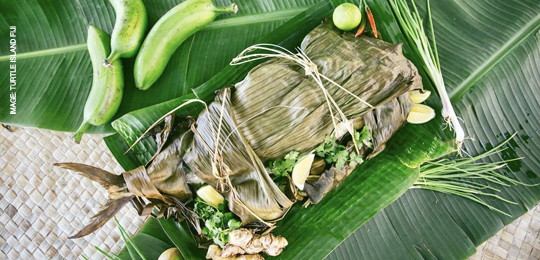October 2019
What Will It Take?

The replacement of traditional foods have led to rising levels of obesity in the Pacific
The Pacific Ending Childhood Obesity Network held its inaugural forum in Nadi this year and brought together Pacific government leaders, academics and non-governmental organisations to address what the World Health Organization has called, “one of the most serious public health challenges of the 21st century.”
Leaders and experts are saying the introduction of Western diets to the Pacific Islands are to blame.
“There’s so much influence that’s come in from the outside on what children get fed,” said Pacific Community’s Director General Dr. Colin Tukuitonga, who believes foreign food marketing has partly influenced the eating habits of children.
“What gets advertised at the moment most people would say does not constitute what experts would say is a healthy diet.”
Researchers at Oxford University found the replacement of traditional foods have led to rising levels of obesity in the Pacific.
“The Pacific Islands were colonized by Australian, American, New Zealand, British or French nations following Second World War.”
“It saw a change in diets that encouraged a dependency on imported food which also meant local fishing and farming industries on the islands died out,” researchers state.
“These Western foods also became a sign of social status among the islanders, they were taught to fry their fish, rather than eat it raw as they had done before.”
A report published in 2016 by the World Obesity Federation has revealed that childhood obesity and adolescents with obesity has risen from 11 million to 124 million in forty years.
The report identified the Pacific Islands as the highest rates of obesity and American Samoa is leading the chart with 75 percent of its population as obese.
Nauru and the Cook Islands came in second and third with 71 percent and 63 percent of the population obese.
While obesity has been linked with poor health and early death including cardiovascular disease and diabetes, Sashi Kiran the Founder and Managing Director of Foundation for Rural Integrated Enterprises & Development (FRIEND), is working on reducing these numbers.
“Our research shows that 80 percent of all deaths in Fiji alone is attributed to NCDs, Diabetes is the number two killer and Cardiovascular being the number one.”
In 2013, FRIEND partnered with the Ministry of Health to fight NCDs in the communities.
“Our physiotherapist works with diabetic and stroke patients on house to house visits, while the trainer promotes physical exercise in the communities,” she said.
“We encourage backyard gardening to ensure families have healthy meals, a lot of awareness programmes have been mounted on developing healthy meals to try and reduce dependency on processed foods.”
Dr. Colin Tukuitonga believes the Pacific needs to work together to overcome childhood obesity.
“You can’t have Tonga plug away themselves at trying to limit those images (foreign food marketing), because the images come in off the internet made in Australia, New Zealand, US and Canada,” he said.
“This is why collaboration is so important because a small island in the middle of the Pacific is not likely to have any impact at all.”
Twelve Pacific countries have currently adopted tax on sugar sweetened beverages in a move to fight non-communicable diseases in the Pacific.
The Pacific Ending Childhood Obesity Network will prioritize collective action in four strategic areas; physical activity promotion, the restriction of marketing of unhealthy foods and non-alcoholic beverages to children, fiscal policy intervention and child obesity surveillance.
